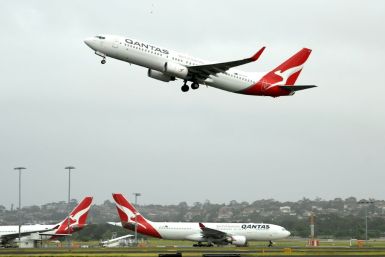Netherlands Urged to Repatriate Gold Reserves
Notwithstanding how good current relations may be between the Netherlands and the U.S., once global investor confidence waned on the American dollar, the Dutch could still lose the gold reserves it placed in full trust in various strategic vaults in the US. Call it perhaps survivor's instinct.
Gold experts in the Netherlands advised the federal government it should start facilitating the repatriation of its gold reserves from the U.S. , as well as from Great Britain and Canada, after the Dutch central bank (DNB) confirmed a Dutch newspaper report by the de Volkskrant that revealed much of the country's reserves of the yellow metal are not within the country.
Dutch gold experts all the more got restless when American commentator Jim Richards, according to the Radio Netherlands Worldwide, said the US government has the power to confiscate whatever foreign gold reserves it holds in the event global interest on the dollar decelerated, still owing to the global fiscal crisis that had shaken the fiscal stability of the much developed economies.
For Confiscation?
Klaas Knot, President of the DNB, said 90 per cent of the Netherlands' gold reserves are kept overseas, claiming further that "the gold is fine where it is." Much of that figure is placed in vaults in New York City, without identifying names of banks or institutions.
"The Netherlands should repatriate its gold as soon as possible. We should take advantage of this information," the Radio Netherlands Worldwide quoting Dutch gold expert Willem Middelkoop as saying.
"We've always had a good relationship with the US. There are sufficient guarantees," Mr. Knot said.
As with other global central banks, the total amount of gold that the Netherlands holds is a state secret. Nobody knows the exact figure, even the amount of gold maintained in the vaults of the DNB headquarters in Amsterdam.
According to Mr. Knot, however, the DNB headquarters alone holds about 67 tonnes worth of gold, amounting to about three billion euros, the Radio Netherlands Worldwide reported.
The world's central banks have been buying and holding gold acquisitions to maintain, ensure and protect a well-diversified foreign-exchange portfolio that is less dependent on the American dollar.
Gold's Performance
And regardless of gold's not so glittery performance since the new year started, analysts and experts continue to issue the same message, that bubble or not, gold still remains a good hedge against inflation.
On Monday, spot gold yet again lost its shine, after gaining a 3 per cent gain last week, as the dollar held its ground fuelled by the growing concerns on the eurozone fiscal crisis.
By 0319 GMT, spot gold fell 0.6 per cent to $1,606.99 an ounce, extending losses from the previous session, while the dollar index jumped to its highest in 16 months, ultimately pressuring commodities.
And when prices of the safe haven yellow metal are down, this is the best time for central banks to purchase and stock the precious metal as gold reserves represent an important buffer during economically turbulent times.
Gold purchases by central banks around the world have more than doubled by 114 per cent over the previous quarter. Figures from the Gold Demand Trends report for Q3 2011 by the World Gold Council showed the gold buying spree of central banks from China, Russia, Thailand and Mexico in the third quarter of 2011 alone revealed a hike of more than six times to 148.4 tons compared to a year ago.






